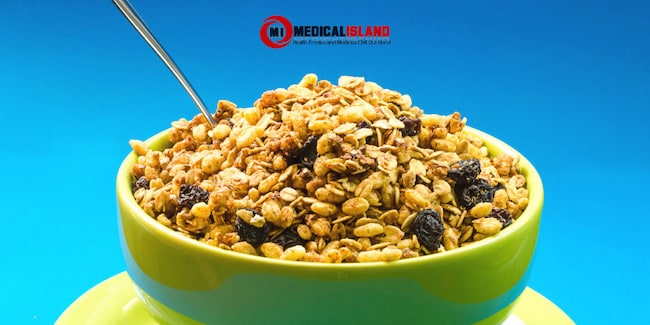The keto diet is one of the most popular dietary plans out there, as it has been found to be exceptionally effective in bringing about significant fat loss by pushing the body into ketosis; a stage where the body accepts and utilizes fat as the primary source of energy, instead of carbohydrates. However, not every effective diet is necessarily safe, so the big question is, can we trust the keto diet as being medically safe?

The short answer to that question would be yes, a well-planned keto diet, under the guidance of a professional is most certainly safe for most individuals. To understand why it is so, go through the following, as we discuss how ketosis affects the human body and everything else that you need to know about it before considering the diet.
What is the Keto Diet?
Depending on the plan in question, it may differ a bit in practice, but at its core, all ketogenic diets are designed to put people on a meal plan which consists primarily of healthy fats, a portion of protein, and carbs in very low amounts. Some of the common sources of healthy fats allowed in a ketogenic diet include cheese, coconut oil, seafood, meat, poultry, yogurt, avocados and low-carb veggies like broccoli and zucchini. The idea is to reduce daily carb intake to such an extent that the body has no option but to rely on the secondary source of energy, which is fat. As the liver starts to break down fat from the fatty foods which you are eating on a ketogenic diet, your body switches over to a stage called ketosis and it starts using only ketones as the primary source of energy, instead of glucose. Once this stage is reached, then the body also begins to break down the stored fat for ketones, which is precisely what brings about healthy and natural fat loss.
Is It a Healthy Way to Lose Fat?
Not only is it healthy, but in many ways, ketosis could even be considered as one of the healthiest ways to lose fat because you are not denying your body of essential nutrients such as proteins, vitamins, fatty acids, etc. You are simply reducing the availability of the carbohydrates so that the system can automatically start treating fat as a fuel source, therefore, breaking down stored fat in the process. As sugar and other harmful sources of glucose are minimized or completely excluded from the diet, it reduces pressure from the pancreas. They do not have to produce massive amounts of insulin anymore to get rid of the blood sugar that forms naturally on breaking down carbs and sugary foods. Also, a keto diet reduces insulin tolerance, which is a slowly developing condition that leads to diabetes.
When Can a Keto Diet be Dangerous for People?
Ideally, a keto diet shouldn’t cause any health complications if the diet is followed under a proper plan devised by a fitness and diet professional who knows what he/she is doing. However, the nutrient requirements of the body still need to be fulfilled appropriately and unless the keto diet is properly balanced and maintained accordingly, it could cause problems, as we are used to receiving many of the essential nutrients from carb-rich food sources. This is where a ketogenic product like KetoMeal from KetoLogiccomes in, as it supplements the keto diet and makes sure that you are not missing out on the daily requirement of essential nutrients while staying on the keto diet. All you need to do is replace one of your daily keto meals with a KetoMeal shake and it will supplement the rest of your meals adequately.
Now that the basics have been explained, it is also vital that we understand the necessity of consulting with a physician first if someone already has a severe medical condition such as hypertension and diabetes, or if you are pregnant. While keto diets are suited for most people, anyone with a consistent or exceptional medical condition should always consult with their doctors first before trying out the keto diet.
Keto Myths: Is There Any Truth to Them?
There are a number of myths and half-truths circulating on the internet, giving a bad name to the keto diet, so go through the following to clear any confusion you might have:
The Brain Needs Glucose –It’s true that the brain does need glucose in small amounts daily and that’s why keto diets do have a small amount of carbs in them to meet that need easily.
It May Cause Malnutrition– Given that a keto diet is rich in essential nutrients and fats from natural food sources, it’s a not even a real problem! If anything, a keto diet is more nutritious than the average meal.
Ketoacidosis– It’s medically impossible to get ketoacidosis from a ketogenic diet, as long as you have even a minimally functioning pancreas, and are producing insulin.
As can be seen, a keto diet is not just medically safe but is in many ways better than a regular diet, as long as you do not have any medically conflicting disorders, diseases or conditions.

Nice advice! I really love the keto diet. In fact,
I have made a lot of progress with changing my eating
habits over the past year.
One tool that really helped me get started was having access to
a quality ketogenic diet cookbook.
Recently, I found one that provides 148 ketogenic recipes complete with a meal planning guide.
In addition, it provides you with a handy list of high-carb foods to avoid and advice on how to get rid of your cravings for them.
The recipes are amazing and it contains enough recipes to keep you from getting bored with your new
diet.
I highly recommend that you try it.
Click on the link below for instant access:
http://ketodietmeals.com